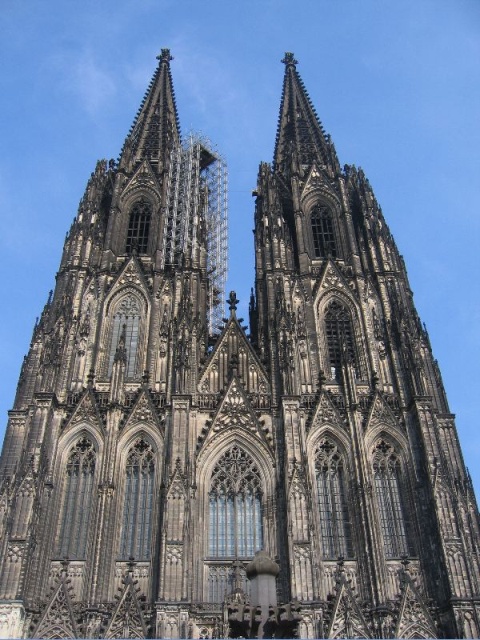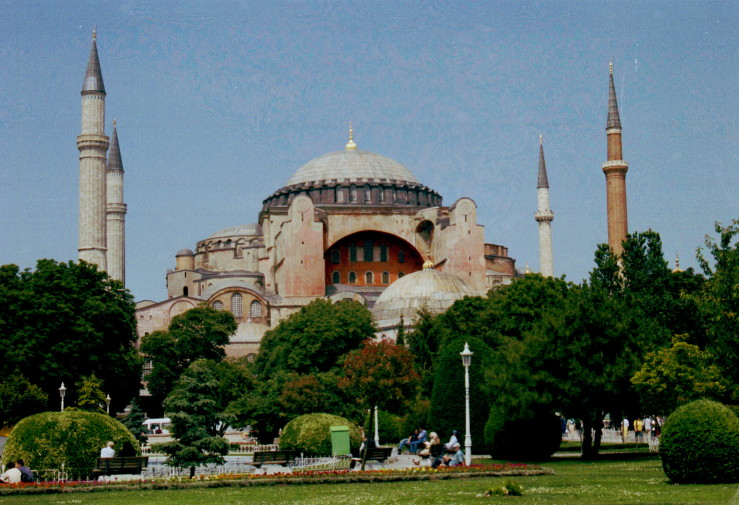 Now, I'm sure that the war on Christmas has been a great fund-raiser for somebody, but behind the cynical smokescreen hides a truth that the Church dreads even more than her imaginary conspiracies - I refer to this: Christmas belongs to the world, not to the church. I will weep through Silent Night with the best of them as the candles light the darkened sanctuary on Christmas Eve, but in my heart I have to admit that Christ's incarnation must have been done with more than this comforting ritual in mind.
Now, I'm sure that the war on Christmas has been a great fund-raiser for somebody, but behind the cynical smokescreen hides a truth that the Church dreads even more than her imaginary conspiracies - I refer to this: Christmas belongs to the world, not to the church. I will weep through Silent Night with the best of them as the candles light the darkened sanctuary on Christmas Eve, but in my heart I have to admit that Christ's incarnation must have been done with more than this comforting ritual in mind.Our great fear may be not that we will lose Christmas, but rather that we will loose ownership of Christmas. Because the church belongs to Jesus, we feel that the opposite should be true - Jesus should belong to us. But God's heart is too great to be contained in so small a vessel as Christianity. The secular world seems determined to wrest Christmas from our grasp. Perhaps it is doing God's work. God may be moving to restore stewardship of Christ's nativity to the world to whom it was given. Our grief may be for the loss of an ownership to which we were never entitled.
The world belongs to its Creator. We - that is, the Church - are only a small part of God's plan. We presume too much when we insist that Christmas must be as we see fit.
And so I take up my pen (this message was drafted the old-fashioned way, in honor of the day. ed.) on this clear Bluegrass morning to praise a more secular Christmas.
Luke's narrative describes the root of God's Christmas tree, but the fruit is not buried in the dark soil - it is out in the light. Many of the sweetest of those fruits are secular, not religious. The evangelists of this secular Christmas are known to every American and to many parts of the rest of the world: not only Dr. Luke, but also Dr. Seuss and Charles Dickens and Clement Moore. The creche reminds us what Christmas is, but George Bailey's wonderful life teaches us what it means.
Linus knows that Christmas is all about shepherds and a manger - he also knows that it is all about compassion for blockheads. The Grinch, with his hand cupped to his ear, learns that Christmas comes without packages, boxes, or bags. Somehow or other, It comes just the same without these things.
The true meaning of Christmas is not the fact of the incarnation, it is the fruit of that holy event. Because God became humble and was laid in a manger, Christmas is the day when we ought to remember to walk humbly among God's children.
At the end of the year, there are three great holidays in Christian America. At Thanksgiving we celebrate creation - giving thanks for all the things that we have.
On New Years Eve we celebrate life - rejoicing in the great wheel of birth and death that frees us from yesterday and allows us to hope for tomorrow as we remember the Auld and welcome the New with banging pots, popping corks, and laughter at ourselves in our funny hats.
And here at the center of the holidays is Christmas - the high holy day when the delight of receiving a present is exceeded by watching our loved one's eyes light with happiness at they accept our gift to them.
In that joyful moment, we encounter the true meaning of Christmas. This is the day when we celebrate one another. At Christmas, our joy comes from what we give, not what we receive. I hand you your beautiful combs and you give me my watch fob and what passes between us is more precious that those expensive, useless trinkets. We have given a part of ourselves to one another . If only for a moment, we have given one another the fleeting, loving gift of happiness.
 The secular world owns the manger because Christmas belongs to the world.On that holy,silent night,a man and a woman gave the best of themselves to God, to one another, and to the world. When shepherds came to see what had happened, the spirit of Christmas was there in their joyful faces.For a few hours in a stable in Bethlehem yesterday's troubles and tomorrow's terrors were put aside. For a few hours, grown men and women gazed in wonder at a beautiful gift - and God's heart will filled with the joy of a child who has given his best, and brought it happiness to the receiver.
The secular world owns the manger because Christmas belongs to the world.On that holy,silent night,a man and a woman gave the best of themselves to God, to one another, and to the world. When shepherds came to see what had happened, the spirit of Christmas was there in their joyful faces.For a few hours in a stable in Bethlehem yesterday's troubles and tomorrow's terrors were put aside. For a few hours, grown men and women gazed in wonder at a beautiful gift - and God's heart will filled with the joy of a child who has given his best, and brought it happiness to the receiver.Keep Christmas in your own way Church, and let the world keep it in hers. Secular Christmas has done us good, and will do us good and I say God bless it. God bless Blockheads and Grinches - lonely misers and disappointed Building and Loan executives - snowmen who can talk and reindeer who don't fit in and jolly old elves. God bless us, all whos far and near. May God bless you and me this Christmas and may each of us know the joy of giving.
God bless us, every one.
Peace,
b
=====
The image of the Nativity is by Brian Jekel








































